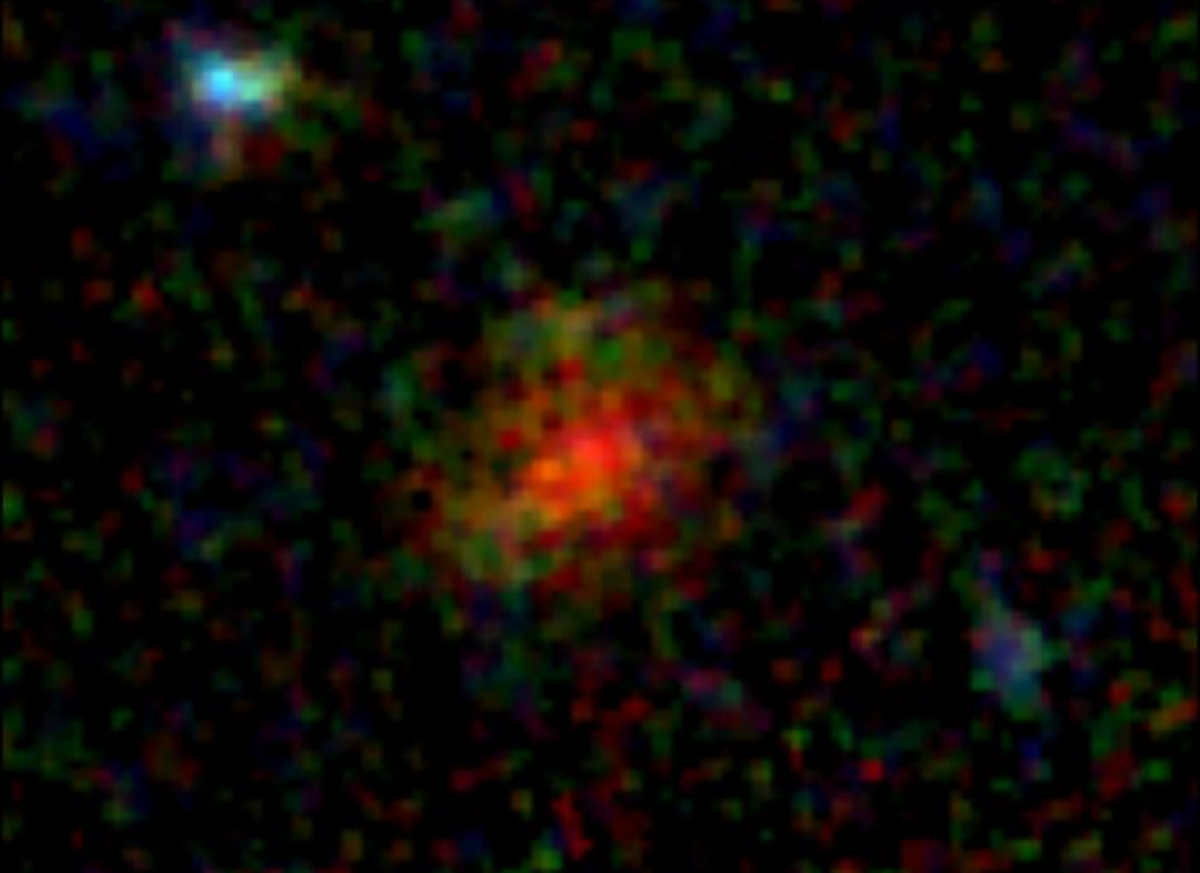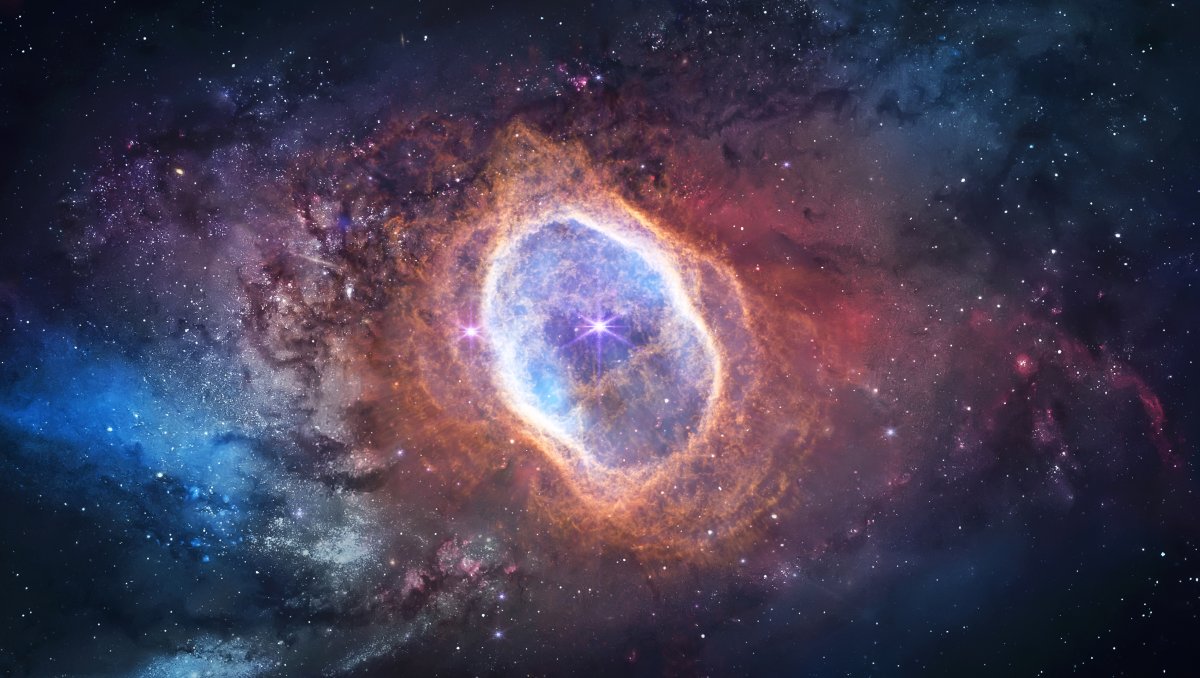A ghostly galaxy that forms hundreds of new stars every year, has reappeared after proving difficult to find.
AzTECC71 first appeared in images captured from the Hubble Space Telescope but was very hard to see. However, astronomers have now found it again, in images from the James Webb Telescope, which show it in multi-colored filters.
The galaxy, which is detailed in a new study published in The Astrophysical Journal, is what is known as a "dusty star forming galaxy." Many new stars are being created in this galaxy every year, but it is surrounded in a veil of dust that makes it hard to see without the technology the James Webb Telescope possesses.

The James Clerk Maxwell Telescope in Hawaii and the ALMA telescope in Chile both found the galaxy before it was observed by the James Webb Telescope. Researchers found that in shorter wavelengths, the galaxy was completely invisible and only at a wavelength of 4.44 microns was it observable.
The researchers believe that it is being seen "at a redshift of about 6, which translates to about 900 million years after the Big Bang."
"This thing is a real monster," Jed McKinney, a postdoctoral researcher at The University of Texas at Austin, who was involved in the research, said in a press release. "Even though it looks like a little blob, it's actually forming hundreds of new stars every year. And the fact that even something that extreme is barely visible in the most sensitive imaging from our newest telescope is so exciting to me. It's potentially telling us there's a whole population of galaxies that have been hiding from us."
Astronomers thought these kinds of galaxies were extremely rare but the discovery of AzTECC71 suggests that this might not be true.
As these galaxies are hard to spot, astronomers are preparing for many more to be discovered as their research continues.
If it turns out that these galaxies are actually very common, it will mean that the early universe was much "dustier" and veiled than originally suspected.
The study in The Astrophysical Journal was part of the COSMOS-Web project, which aims to find and map up to 1 million galaxies using the James Webb Telescope in a bid to gain new insight into the early universe and its structure.

"Until now, the only way we've been able to see galaxies in the early universe is from an optical perspective with Hubble," McKinney said. "That means our understanding of the history of galaxy evolution is biased because we're only seeing the unobscured, less dusty galaxies."
NASA's James Webb Space Telescope was launched in 2021 and captured images using infrared astronomy. It is the largest optical telescope in space. It is able to pick up images from extremely old, distant objects that otherwise would remain undiscovered.
It is equipped to pick up things that the Hubble Space Telescope—which launched in 1990—cannot.
Uncommon Knowledge
Newsweek is committed to challenging conventional wisdom and finding connections in the search for common ground.
Newsweek is committed to challenging conventional wisdom and finding connections in the search for common ground.
About the writer
Robyn White is a Newsweek Nature Reporter based in London, UK. Her focus is reporting on wildlife, science and the ... Read more
To read how Newsweek uses AI as a newsroom tool, Click here.






